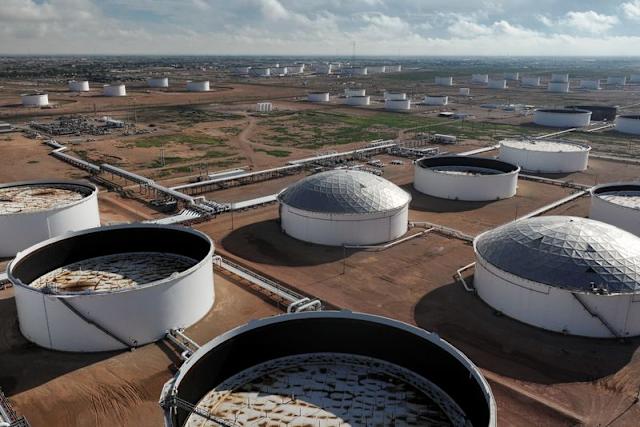Oil set for steepest weekly decline in two years as war premium vanishes

By Siyi Liu
SINGAPORE (Reuters) -Oil prices headed for their steepest weekly decline since March 2023 on Friday, as the absence of significant supply disruption from the Iran-Israel conflict saw any risk premium evaporate.
Brent crude futures rose 36 cents, or 0.53%, to $68.09 a barrel by 0637 GMT while U.S. West Texas Intermediate crude gained 33 cents, or 0.51%, to $65.57. That put both contracts on course for a weekly fall of about 12%.
The benchmarks are now back at the levels they were at before Israel began the conflict by firing missiles at Iranian military and nuclear targets on June 13.
This week began with prices hitting a five-month high after the U.S. attacked Iranian nuclear sites at the weekend, before slumping to their lowest in over a week on Tuesday when U.S. President Donald Trump announced an Iran-Israel ceasefire.
At present, traders and analysts said they could see no material impact from the crisis on oil flows.
"Absent the threat of significant supply disruption, we still view oil as fundamentally oversupplied, with our 2025 balances indicating a roughly 2.1 million barrels per day (bpd) surplus," Macquarie analysts wrote in a research note on Thursday.
The analysts forecast WTI to average around $67 a barrel this year and $60 next year, raising each forecast by $2 after factoring in a geopolitical risk premium.
Small gains in prices later in the week came as U.S. government data showed crude oil and fuel inventories fell a week earlier, with refining activity and demand rising. [EIA/S]
"The market is starting to digest the fact that crude oil inventories are very tight all of a sudden," said Phil Flynn, senior analyst at the Price Futures Group.
Also supporting prices was a Wall Street Journal report that Trump planned to choose the next Federal Reserve chief earlier than usual. That fuelled fresh bets on U.S. interest rate cuts, which would typically stimulate demand for oil.
(Reporting by Siyi Liu in Singapore and Nicole Jao in New York; Editing by Tom Hogue, Christopher Cushing and Jamie Freed)
随着战争风险的减退,石油价格录得两年内单周最大跌幅成为新的市场现象,反映出投资者情绪从避险转向风险承受的显著转变。
As the tension of war recedes, oil prices are set for their steepest weekly decline in two years amidst a vanishing 'war premium', signaling disrupted global markets and potentially stable economies.
The oil market'scorrection mirrors the subsiding impact of geopolitical instability, signaling its removal as a dominant force driving prices.














